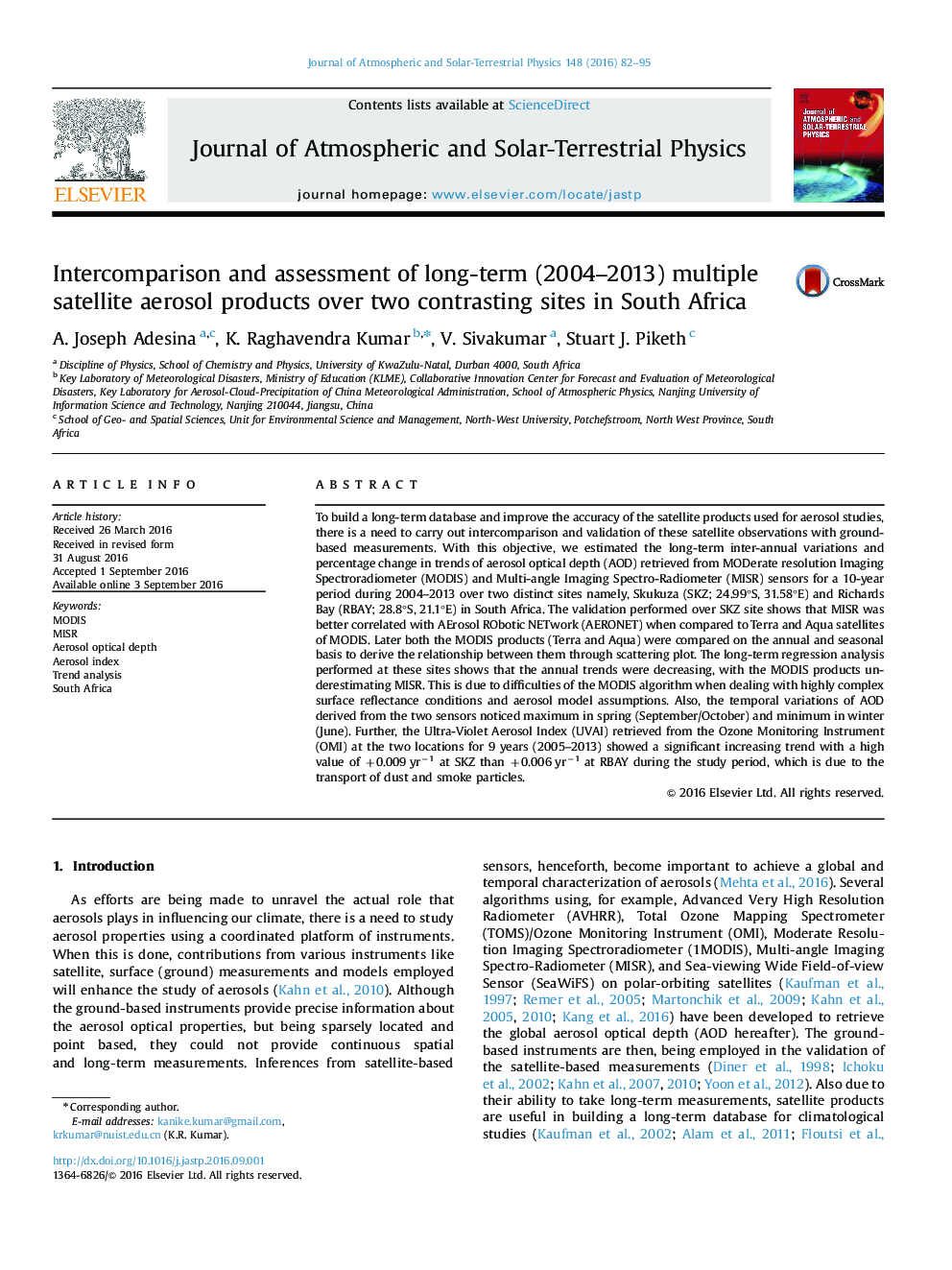| Article ID | Journal | Published Year | Pages | File Type |
|---|---|---|---|---|
| 8139878 | Journal of Atmospheric and Solar-Terrestrial Physics | 2016 | 14 Pages |
Abstract
To build a long-term database and improve the accuracy of the satellite products used for aerosol studies, there is a need to carry out intercomparison and validation of these satellite observations with ground-based measurements. With this objective, we estimated the long-term inter-annual variations and percentage change in trends of aerosol optical depth (AOD) retrieved from MODerate resolution Imaging Spectroradiometer (MODIS) and Multi-angle Imaging Spectro-Radiometer (MISR) sensors for a 10-year period during 2004-2013 over two distinct sites namely, Skukuza (SKZ; 24.99°S, 31.58°E) and Richards Bay (RBAY; 28.8°S, 21.1°E) in South Africa. The validation performed over SKZ site shows that MISR was better correlated with AErosol RObotic NETwork (AERONET) when compared to Terra and Aqua satellites of MODIS. Later both the MODIS products (Terra and Aqua) were compared on the annual and seasonal basis to derive the relationship between them through scattering plot. The long-term regression analysis performed at these sites shows that the annual trends were decreasing, with the MODIS products underestimating MISR. This is due to difficulties of the MODIS algorithm when dealing with highly complex surface reflectance conditions and aerosol model assumptions. Also, the temporal variations of AOD derived from the two sensors noticed maximum in spring (September/October) and minimum in winter (June). Further, the Ultra-Violet Aerosol Index (UVAI) retrieved from the Ozone Monitoring Instrument (OMI) at the two locations for 9 years (2005-2013) showed a significant increasing trend with a high value of +0.009 yrâ1 at SKZ than +0.006 yrâ1 at RBAY during the study period, which is due to the transport of dust and smoke particles.
Related Topics
Physical Sciences and Engineering
Earth and Planetary Sciences
Geophysics
Authors
A. Joseph Adesina, K. Raghavendra Kumar, V. Sivakumar, Stuart J. Piketh,
